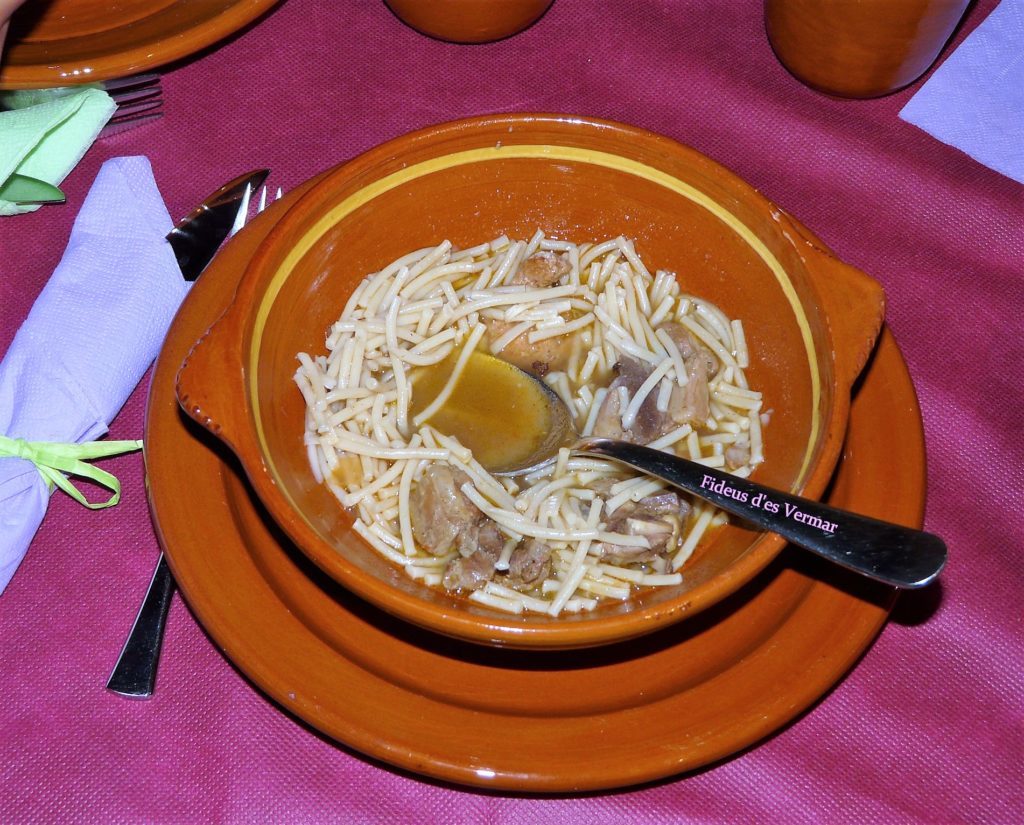The word tradition comes from the Latin traditio, and it defines the collection of cultural goods which are passed on within a community from generation to generation.
We are talking about those customs that each society values and which they maintain so that they can be learned by new generations as an indispensable part of their cultural legacy.
Today we are going to provide you with a culinary tradition from Binissalem, a small municipality located in the centre of the island of Mallorca.
There is no better way to learn about the essence of a tradition than to get up close to where it really “cooks”. So that is what we have done. We have got close to Jaume Moyà Gomila, 88 years of age, and a resident of Binissalem, so that he can give us a first-hand account of how he lived during the times of the grape harvest.
The lack of food and economic resources meant that they had to be inventive in order to feed themselves, particularly during the long working days at the height of the season.
They knew that they had to make the most of the harvesting time, as otherwise, an infestation, such as a swarm of phylloxera, might destroy the grape harvest, which was practically the only source of income in Binissalem.
Because of this, they worked hours, days and even weeks without a break. What we now call team-work, was called subsistence 60 years ago.
Each and every one of the inhabitants had a purpose during the harvest.
While they transported the harvest on carts they enjoyed singing, and they sang gloses mallorquinas, improvised songs which recount stories in the form of witty and mischievous poems.
Food was essential for facing the long working days during the harvest and, when night came, they rested. Whilst some rested, others cooked “fideus des vermar” (a traditional dish made with noodles, wine and lamb) which they would take on the carts to all the farms where the harvest was taking place in order to feed everyone.
Cooking had to be done in large quantities in order to provide the daily food for the pickers and wine crushers. The only rice available was contraband, and meat and fish were scarce and practically unaffordable.
The butchers began to give away sheep that were too old to breed.
That was the meat which, over time, became an essential part of the dish that fed all the labourers and their families throughout every single day of the grape harvest.
Without a doubt, today, we are looking at one of the island’s most cherished events, one which blends the
excitement of the youngest with the choice of the harvesters and wine crushers of the year, the pride of the elders as they re-live a Mallorcan tradition which has been cooked on a slow fire, just like the noodles.
Happy harvest and goodbye until next year!

